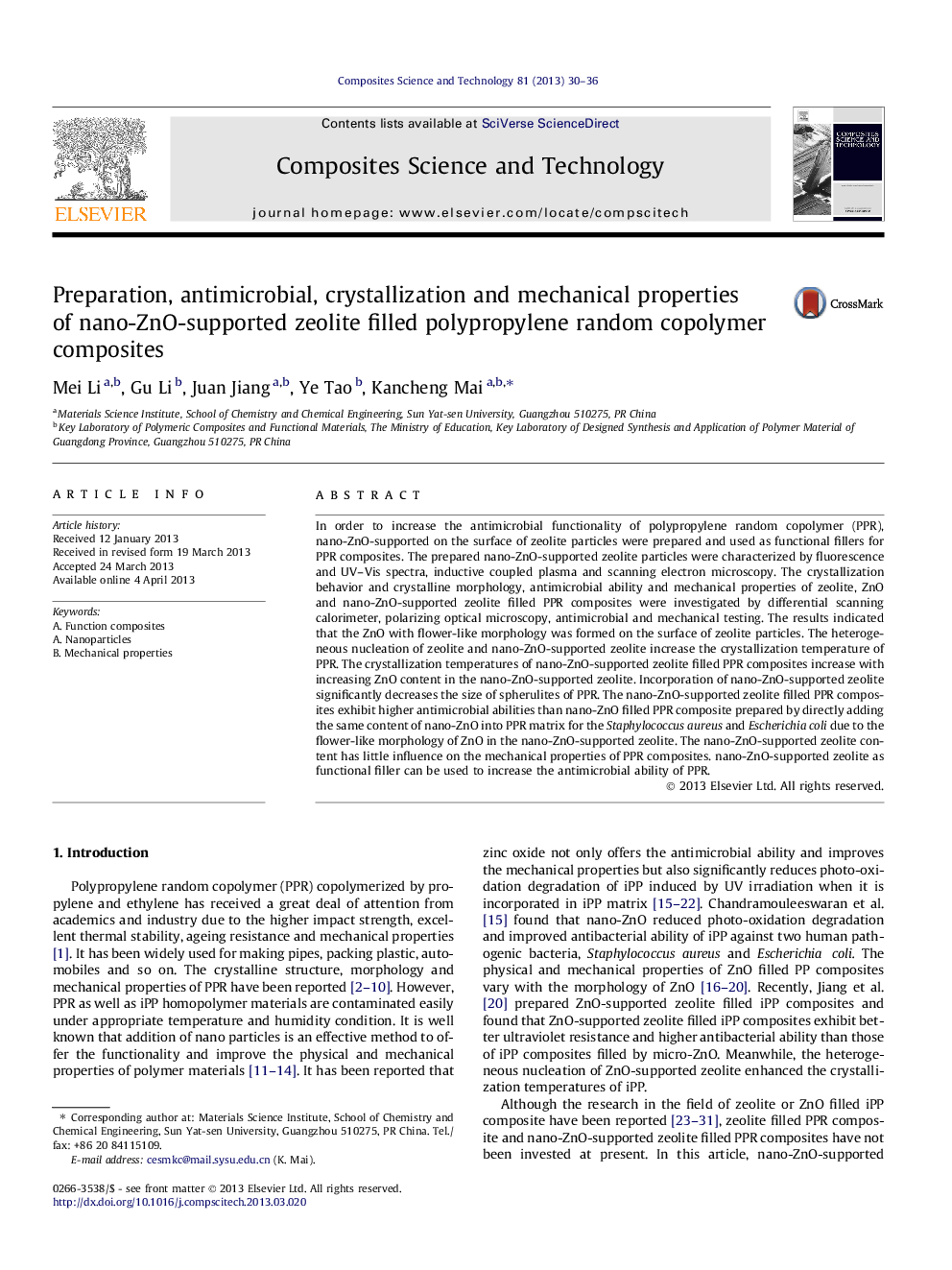| Article ID | Journal | Published Year | Pages | File Type |
|---|---|---|---|---|
| 820521 | Composites Science and Technology | 2013 | 7 Pages |
In order to increase the antimicrobial functionality of polypropylene random copolymer (PPR), nano-ZnO-supported on the surface of zeolite particles were prepared and used as functional fillers for PPR composites. The prepared nano-ZnO-supported zeolite particles were characterized by fluorescence and UV–Vis spectra, inductive coupled plasma and scanning electron microscopy. The crystallization behavior and crystalline morphology, antimicrobial ability and mechanical properties of zeolite, ZnO and nano-ZnO-supported zeolite filled PPR composites were investigated by differential scanning calorimeter, polarizing optical microscopy, antimicrobial and mechanical testing. The results indicated that the ZnO with flower-like morphology was formed on the surface of zeolite particles. The heterogeneous nucleation of zeolite and nano-ZnO-supported zeolite increase the crystallization temperature of PPR. The crystallization temperatures of nano-ZnO-supported zeolite filled PPR composites increase with increasing ZnO content in the nano-ZnO-supported zeolite. Incorporation of nano-ZnO-supported zeolite significantly decreases the size of spherulites of PPR. The nano-ZnO-supported zeolite filled PPR composites exhibit higher antimicrobial abilities than nano-ZnO filled PPR composite prepared by directly adding the same content of nano-ZnO into PPR matrix for the Staphylococcus aureus and Escherichia coli due to the flower-like morphology of ZnO in the nano-ZnO-supported zeolite. The nano-ZnO-supported zeolite content has little influence on the mechanical properties of PPR composites. nano-ZnO-supported zeolite as functional filler can be used to increase the antimicrobial ability of PPR.
